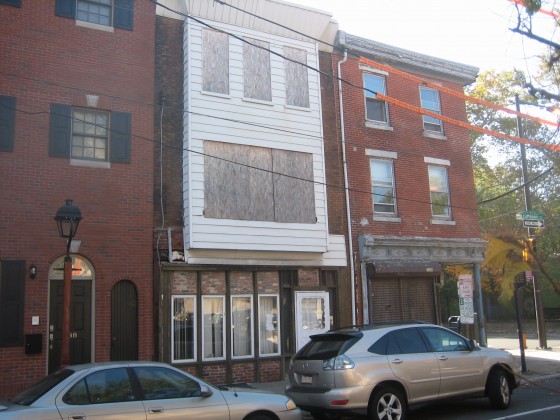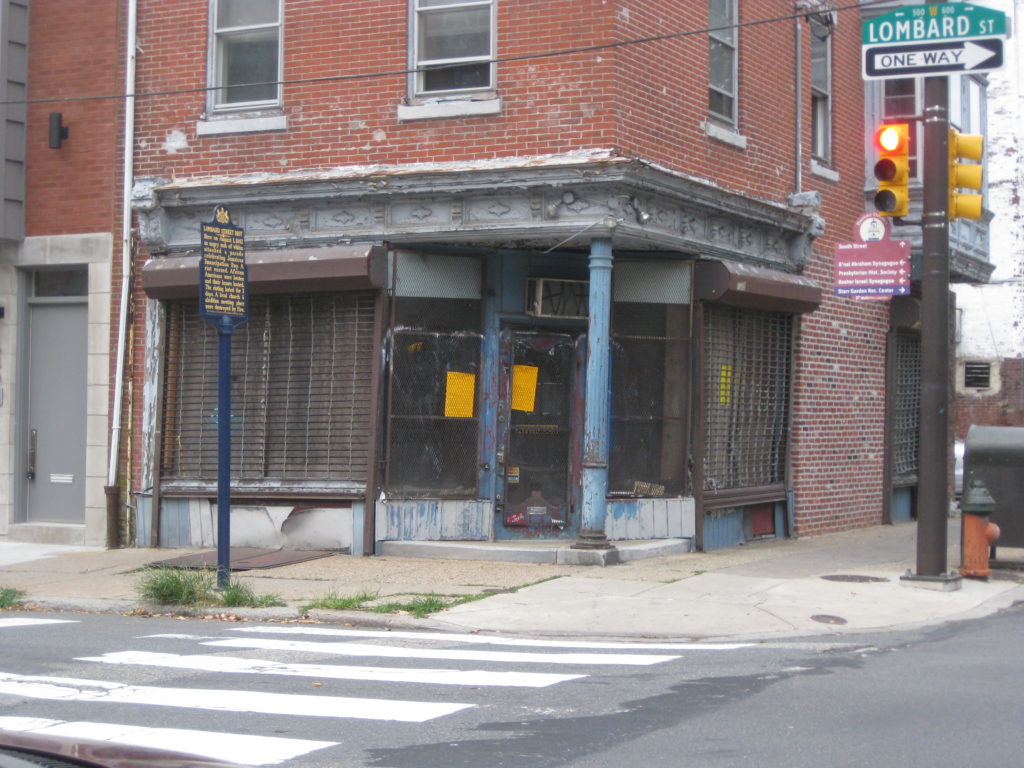A long vacant corner retail location may soon become the areas’s newest coffee shop with two apartments upstairs. But some neighbors are concerned that support for a variance from the Queen Village Neighbors Association (QVNA) to allow prepared foods at 542 Lombard St., could open the door for a variety of future uses that are anything other than prepared food.
We first wrote about this building almost two years ago, wondering how the property and the one next door could be located on such a prominent corner in a persistent state of blight. We revisited this corner last fall, as 540 Lombard St. was undergoing renovations, curious about what might be the fate of its neighbor on the corner.
In Philadelphia, variances granted by the ZBA are linked to the property, not the owner or tenant. Often when a potential tenant comes before a community requesting a commercial use variance, neighbors are concerned that the variance granted to the owner today could be abused by a future owner or operator tomorrow. To account for this, groups like QVNA request that provisos be attached to variance requests as a condition of their support for a given project. These provisos often relate to hours of operation, lighting, trash, and noise, and reign in the possible unexpected uses of a space for future owners or operators.
“I think the biggest fear is it will be a coffee shop today and a bong shop tomorrow,” said Mike Hauptman, QVNA zoning chair. There are already a few of those on South Street in former non-bong stores.
To ensure that doesn’t happen, Hauptman has carefully scoured the details of the new zoning code for a prepared foods shop, which allows for the sale of drinks and sandwiches, pastries and other similar simple goods, but not for actual cooking. He wants to be sure this specific title will not allow for future uses that differ from the neighborhood coffee shop it’s proposed to be.
According to Hauptman, Philly’s civic groups have been trying to get that law changed for years. It would certainly make zoning on a case-by-case basis simpler. It would also give the civic organizations the long-term community character building influence they’re supposed to have. When this writer covered zoning in the Jamaican Plain neighborhood in Boston in 2006, variances were often linked to owners. If a new owner came along, it meant another community zoning process.
As for this case, Hauptman said that QVNA has worked successfully with the owner, who purchased the property from Mother Bethel Church, which was unable to finance redevelopment of the building itself, to finalize provisos with local neighbors. As a result, the group wrote a letter of support, and the ZBA approved the project with provisos earlier this week. And soon it seems, this blighted building will come back into active use, which will be a big win for everyone involved.
–Lou Mancinelli


